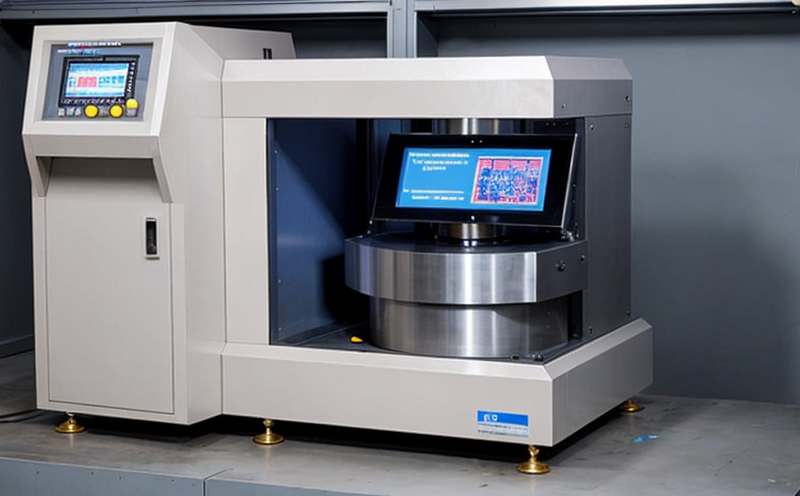ASTM D1204 Dimensional Change Testing of Thermoplastics
The ASTM D1204 standard is a critical tool used by manufacturers and quality assurance professionals to assess dimensional stability in thermoplastics during processing. This method measures the change in linear dimensions (length, width, or thickness) after exposure to elevated temperatures for specified durations. Understanding how temperature affects the physical properties of materials like polyethylene, polystyrene, and acrylics is essential for ensuring product consistency and performance.
The primary focus of ASTM D1204 lies in quantifying dimensional change under specific conditions that simulate real-world manufacturing processes such as injection molding or extrusion. By conducting this test accurately, manufacturers can identify potential issues early on, optimizing their production lines to meet strict specifications set by industry standards and regulatory bodies.
The testing procedure involves measuring the dimensions of a thermoplastic sample before heating it in an oven maintained at controlled temperatures for predetermined times. After cooling down completely, another round of precise measurements is taken. The difference between these two sets of measurements represents the dimensional change experienced by the material due to thermal exposure.
Accurate measurement techniques are crucial here; hence advanced metrology equipment plays a vital role in ensuring reliable results. Commonly used tools include laser interferometers and coordinate measuring machines (CMMs), which provide high-resolution data points necessary for accurate calculations of dimensional shifts.
Understanding ASTM D1204 can help industry professionals anticipate the behavior of thermoplastics under various conditions, thus enabling better decision-making regarding process parameters. For instance, if significant dimensional changes are detected during testing, adjustments might be needed in mold design or processing temperature settings to maintain desired product dimensions throughout production cycles.
Moreover, knowing how different types of thermoplastics respond differently to heat allows manufacturers to choose the most suitable material for their applications. This information is also valuable when dealing with complex assemblies where multiple components made from various materials need to fit together seamlessly without distortion.
In summary, ASTM D1204 provides an essential framework for evaluating dimensional stability in thermoplastics subjected to elevated temperatures. Its application ensures that products meet expected quality standards while minimizing waste and rework associated with discrepancies between design intent and actual performance.
Why It Matters
Dimensional accuracy is paramount when working with thermoplastics, especially in industries where precision manufacturing is key. Whether you're developing new products or maintaining existing ones, ensuring that your materials behave predictably under varying temperatures is crucial for achieving consistent quality.
- Quality Assurance: By regularly performing ASTM D1204 testing, companies can identify any inconsistencies in their production processes early on, leading to improved product reliability and customer satisfaction.
- Regulatory Compliance: Many regulatory bodies require adherence to specific dimensional tolerances. Meeting these standards helps avoid costly fines and reputational damage.
- Product Development: Understanding how materials respond to heat during manufacturing allows developers to fine-tune their designs, enhancing both functionality and manufacturability.
In addition to these benefits, incorporating ASTM D1204 testing into your workflow can significantly reduce scrap rates and improve overall efficiency. With accurate measurements at every stage of production, there's less likelihood of costly errors later on in the supply chain.
Customer Impact and Satisfaction
- Better Product Performance: Ensuring that thermoplastics maintain their original dimensions throughout processing leads to improved product performance. Customers benefit from more durable, reliable parts that function as intended over time.
- Enhanced Reputation: Companies that consistently meet or exceed dimensional accuracy expectations build trust with their customers and stakeholders, fostering long-term relationships based on reliability and quality.
In terms of customer satisfaction, meeting ASTM D1204 requirements translates into fewer complaints about faulty products. This not only enhances customer loyalty but also promotes positive word-of-mouth advertising which is invaluable in today’s competitive market environment.
International Acceptance and Recognition
- Global Standards: ASTM D1204 aligns with international standards such as ISO 9001, ensuring that the testing process meets global quality management principles. This alignment facilitates easier compliance across borders.
- Industry Recognition: Adherence to this standard is widely recognized within the manufacturing sector, adding weight to your company's commitment to excellence and reliability.
The widespread acceptance of ASTM D1204 underscores its importance in maintaining high standards of quality control. By adopting this method, businesses demonstrate their dedication to producing top-notch products that comply with international norms and expectations.





